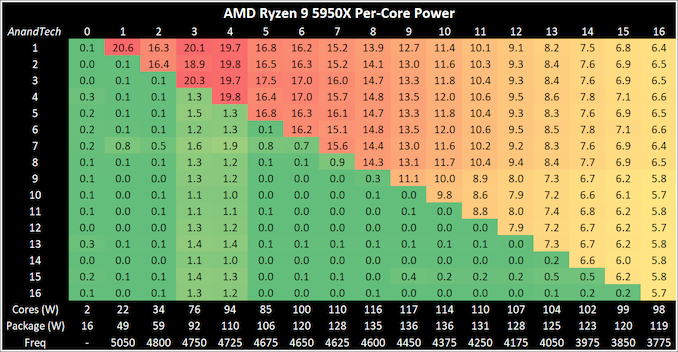If you are actually multi-tasking some of your tasks are dependent on single thread and then 16 full cores are horrible because if they are all used they run 25% slower than single thread because you just can't supply enough power to the CPU, so these tasks will run 25% slower than they should.
With the 12900k these thread sensitive tasks have up to 8 full cores to keep running at full single thread speed while the e-cores take care of less demanding threads.
https://www.anandtech.com/show/1621...e-review-5950x-5900x-5800x-and-5700x-tested/8
12900k 8core=1511:8cores=188=6% less performance than single thread.
(which can be compensated for with a bit more power which we can see form the O/C numbers)
New zen 4 (might not be accurate) 1329:8=166=30% less performance.
(And that's just 8 cores, not the full 16 cores difference)
https://cpu.userbenchmark.com/Compa...ed-Marketing-Devices-7600X/m1685583vsm1898605
Also here is a benchmark with the 12900k locked to 125W as well as "stock" at 240W so it doesn't matter how many hours they would run they would always use that amount of power and get that amount of performance, as you can see the performance difference is 0% at single and about 10% - 20% in multithreaded while the power increase is 100%
So if you think that "All the Intel benchmarks you see, none of them are sustained performance over hours " than what they are obfuscating isn't the performance but the energy efficiency since they show it to be much worse than it really is.
https://www.hardwareluxx.de/index.p...-desktop-cpus-alder-lake-im-test.html?start=5



